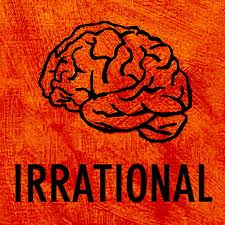 Humans are subject to cognitive biases, those annoying glitches in our thinking that cause us to make questionable decisions and reach erroneous conclusions. Here are the most common and pernicious cognitive biases that you need to know about.
Humans are subject to cognitive biases, those annoying glitches in our thinking that cause us to make questionable decisions and reach erroneous conclusions. Here are the most common and pernicious cognitive biases that you need to know about.
Status-Quo Bias
We humans tend to be apprehensive of change, which often leads us to make choices that guarantee that things remain the same, or change as little as possible. We like to stick to our routines, political parties, and our favorite meals at restaurants. Part of the perniciousness of this bias is the unwarranted assumption that another choice will be inferior or make things worse.
Negativity Bias
People tend to pay more attention to bad news — and it’s not just because we’re morbid. Social scientists theorize that it’s on account of our selective attention and that, given the choice, we perceive negative news as being more important or profound. We also tend to give more credibility to bad news, perhaps because we’re suspicious (or bored) of proclamations to the contrary.
Bandwagon Effect
Though we’re often unconscious of it, we love to go with the flow of the crowd. When the masses start to pick a winner or a favorite, that’s when our individualized brains start to shut down and enter into a kind of “groupthink” or hivemind mentality. It can include small groups, like a family or even a small group of office co-workers. The bandwagon effect is what often causes behaviors, social norms, and memes to propagate among groups of individuals — regardless of the evidence or motives in support.
Projection Bias
As individuals trapped inside our own minds 24/7, it’s often difficult for us to project outside the bounds of our own consciousness and preferences. We tend to assume that most people think just like us — though there may be no justification for it. This cognitive shortcoming often leads to a related effect known as the false consensus bias where we tend to believe that people not only think like us, but that they also agree with us. It’s a bias where we overestimate how typical and normal we are, and assume that a consensus exists on matters when there may be none. Moreover, it can also create the effect where the members of a radical or fringe group assume that more people on the outside agree with them than is the case. Or the exaggerated confidence one has when predicting the winner of an election or sports match.
The Current Moment Bias
We humans have a really hard time imagining ourselves in the future and altering our behaviors and expectations accordingly. Most of us would rather experience pleasure in the current moment, while leaving the pain for later.
Anchoring Effect
Also known as the relativity trap, this is the tendency we have to compare and contrast only a limited set of items. It’s called the anchoring effect because we tend to fixate on a value or number that in turn gets compared to everything else. The classic example is an item at the store that’s on sale; we tend to see (and value) the difference in price, but not the overall price itself. This is why some restaurant menus feature very expensive entrees, while also including more (apparently) reasonably priced ones. It’s also why, when given a choice, we tend to pick the middle option — not too expensive, and not too cheap.
Source:
http://io9.com/5974468/the-most-common-cognitive-biases-that-prevent-you-from-being-rational
